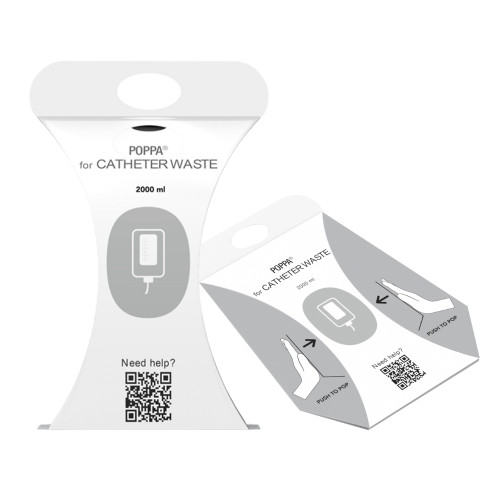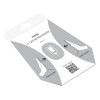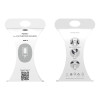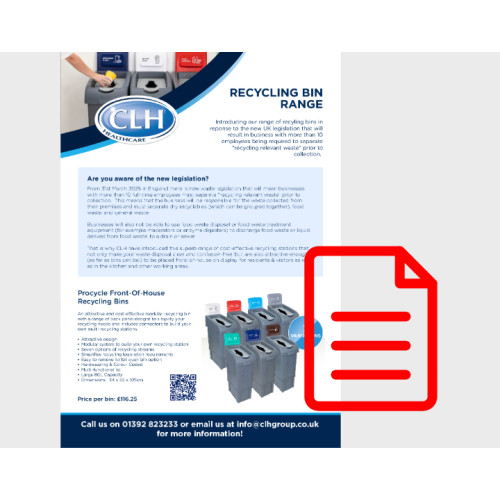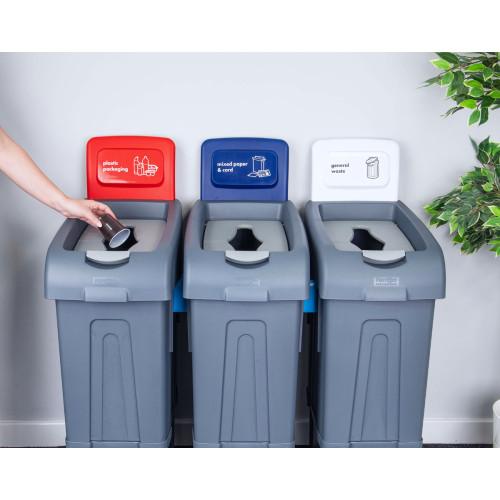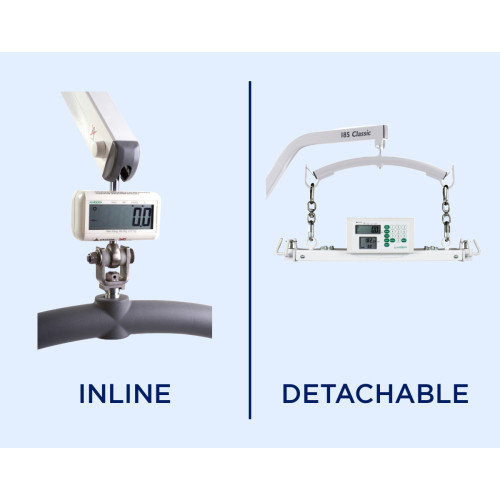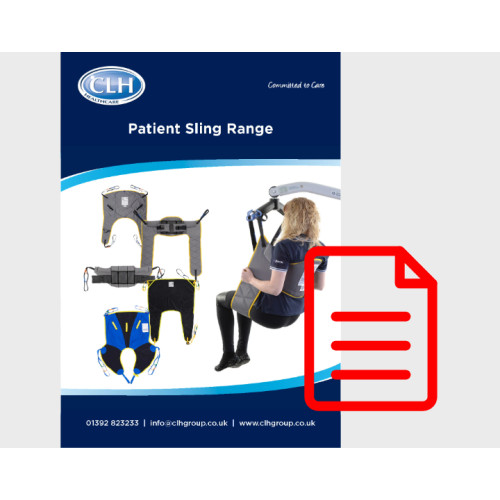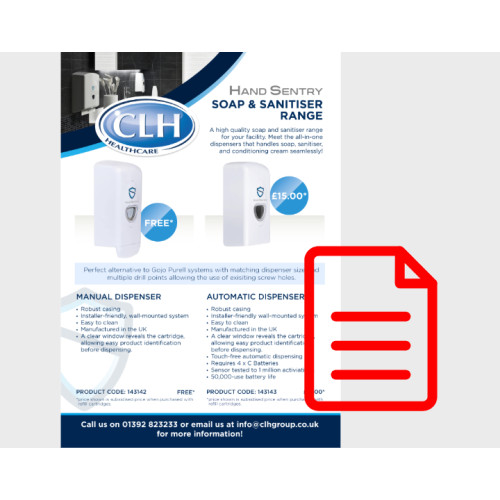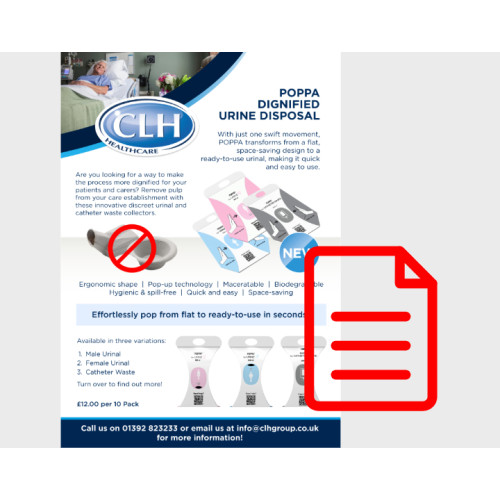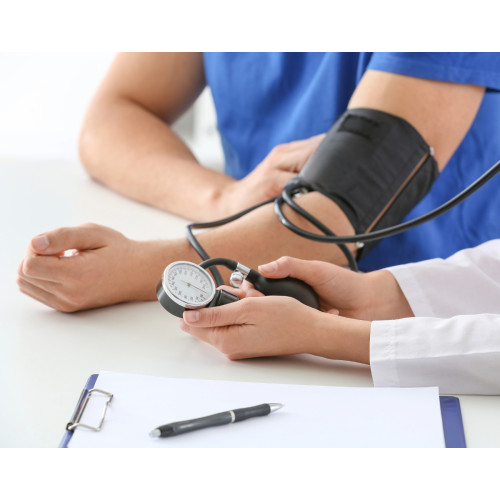POPPA® for Catheter Waste is the first catheter waste product with pop-up technology. Use this product with an absorbent powder for solidifying liquids (e.g. Vernagel or Solidsafe) to safely empty catheter bags of up to 2 litres in capacity.
The key features of this unique product are that it is flat-packed for minimal storage space requirements, and is much easier to carry hygienically from the catheter bag to the disposal area. Remove those unsightly pulp-bowls from your establishment and notice the improvement with POPPA® for Catheter Waste.

- Quick and easy
From flat to ready-to-use in one move. Thanks to its unique pop-up technology, POPPA® is flat before use saving up to 90% space and making it easy to store next to the patient's bed.
- Hygienic and spill-free
POPPA® for Catheter Waste, combined with an absorbent powder for solidifying liquids (e.g. Vernagel or Solidsafe), is able to empty catheter bags of up to 2 litres. The solidified contents can be quickly and safely disposed of or macerated afterwards.
- Sustainable
POPPA® complies with EN13432, is 100% biodegradable, is 100% compostable within 90 days and therefore fits within the European Green Deal. As a result, POPPA® can be easily disposed of or macerated and is biodegradable. No plastic is used!
- Instructions always at hand
POPPA® has a QR code on the front that allows any user to immediately see a clear instruction video. There are also written instruction for use on the back of the product.
Specification
- Single Use
- Maceratable
- Biodegradable
- 2000ml capacity with graduations
- CE | Medical Device
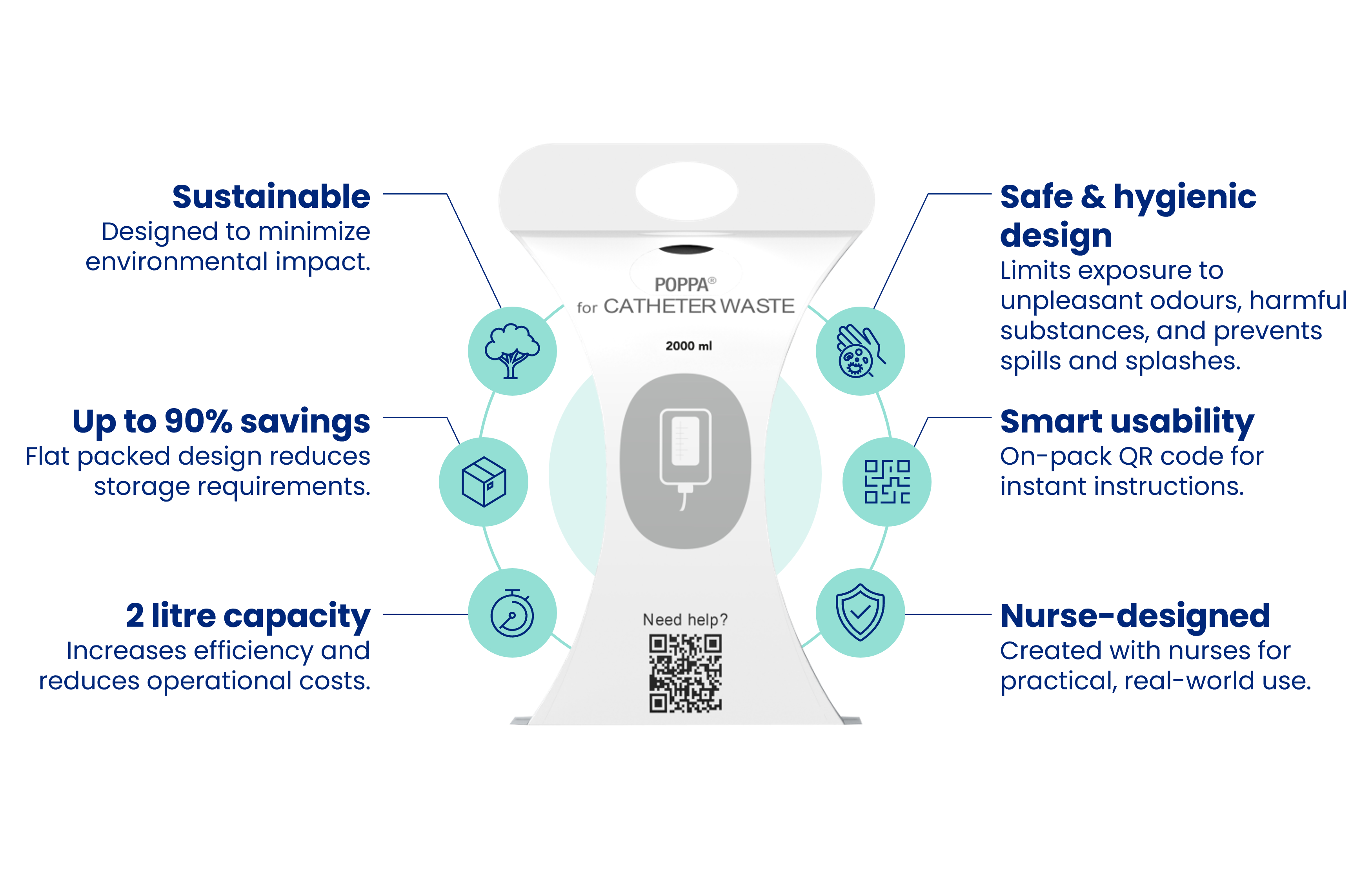
Made in Holland by Hygienius | Humanising Infection Prevention




